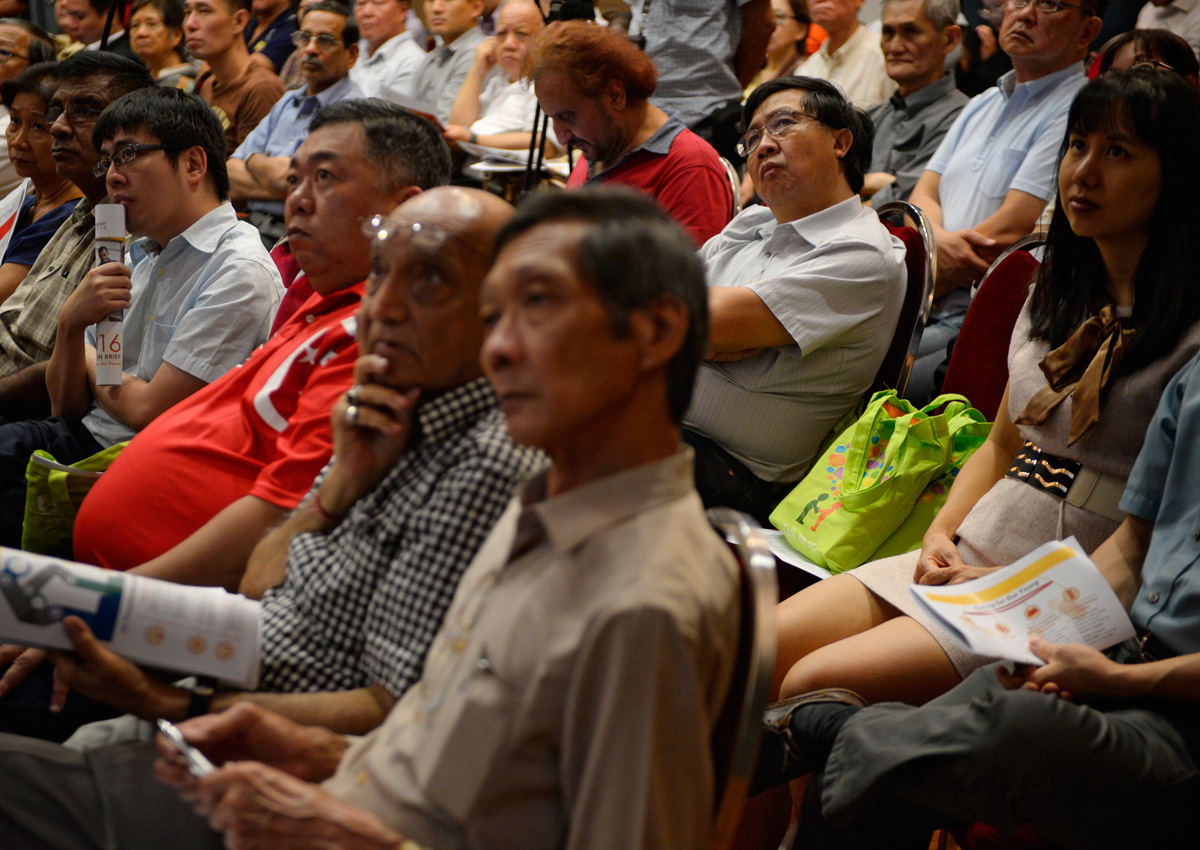A cap on the amount Singapore’s top earners can claim in tax reliefs and the reduction of a productivity grant for small businesses were the two main issues discussed at a public forum on the Budget yesterday.
Some participants wanted to know if the cap on tax reliefs at $80,000 could be expanded to cover more taxpayers, to generate more tax revenue.
Others wondered if the Government was sending mixed signals by stopping the Productivity and Innovation Credit (PIC) at a time when there is a push for companies to innovate and boost productivity.
Mr Bay Meng Yi, 32, who works in the environmental sector, commended the Government for taxing top earners more, but felt the criteria could be expanded to include a bigger proportion of taxpayers.
“An inclusive Budget is not just about giving subsidies to people, it also means getting money from elsewhere. If you are in the fortunate position of being wealthy, you should pay more taxes,” he said.
If he were rich, he would gladly pay more taxes, he added.
Mr Bay was among 100 people attending a dialogue on the Budget, announced last Thursday by Finance Minister Heng Swee Keat.
The forum, organised by government feedback unit Reach, was chaired by Senior Minister of State for Finance and Law Indranee Rajah and Minister of State for Manpower Sam Tan, who heads Reach.
Responding to Mr Bay, Ms Indranee said the cap on personal income tax relief may affect just 1 per cent of Singaporeans, but it will yield the Government an additional $100 million. This is why the criteria are such that only a small proportion of workers are affected, she added.
As for the PIC scheme, Ms Indranee said its broad-based nature meant some companies were buying equipment they may not really need. Under the scheme, businesses receive cash grants of 60 per cent of the money they spend on innovation and productivity improvements. But the grants will be lowered to 40 per cent from August this year. The Government, she added, is moving to replace broad-based measures with more targeted support for companies.
Newly announced schemes, like the Industry Transformation Programme and the Automation Support Package, will encourage companies to consider measures that are more targeted, she said.
Later, she told reporters it is only natural that companies are also concerned about the expiry of the PIC in 2018, as many businesses have come to rely on it to augment their processes. “But it is not that you are taking away something that supports productivity. This is a misconception,” she said. “Rather, you are taking out something that is a broad-based measure and replacing it with more targeted measures.”
At a separate forum on Malay TV channel Suria last night, Communications and Information Minister Yaacob Ibrahim said the Budget’s key messages were partnership and transformation.
This is “not just about the Government doing things, but everybody playing their part – industry, workers, families, the individual”.
Businesses also have to change the way they operate through innovation, and workers have to learn and relearn new skills, he added.
“That is how we can prepare ourselves for SG100,” he said.
Parliament will sit for two weeks, from Monday, to debate the Budget as well as the plans and policies of various ministries and key government agencies for the new financial year.
leepearl@sph.com.sg

This article was first published on March 31, 2016.
Get a copy of The Straits Times or go to straitstimes.com for more stories.






